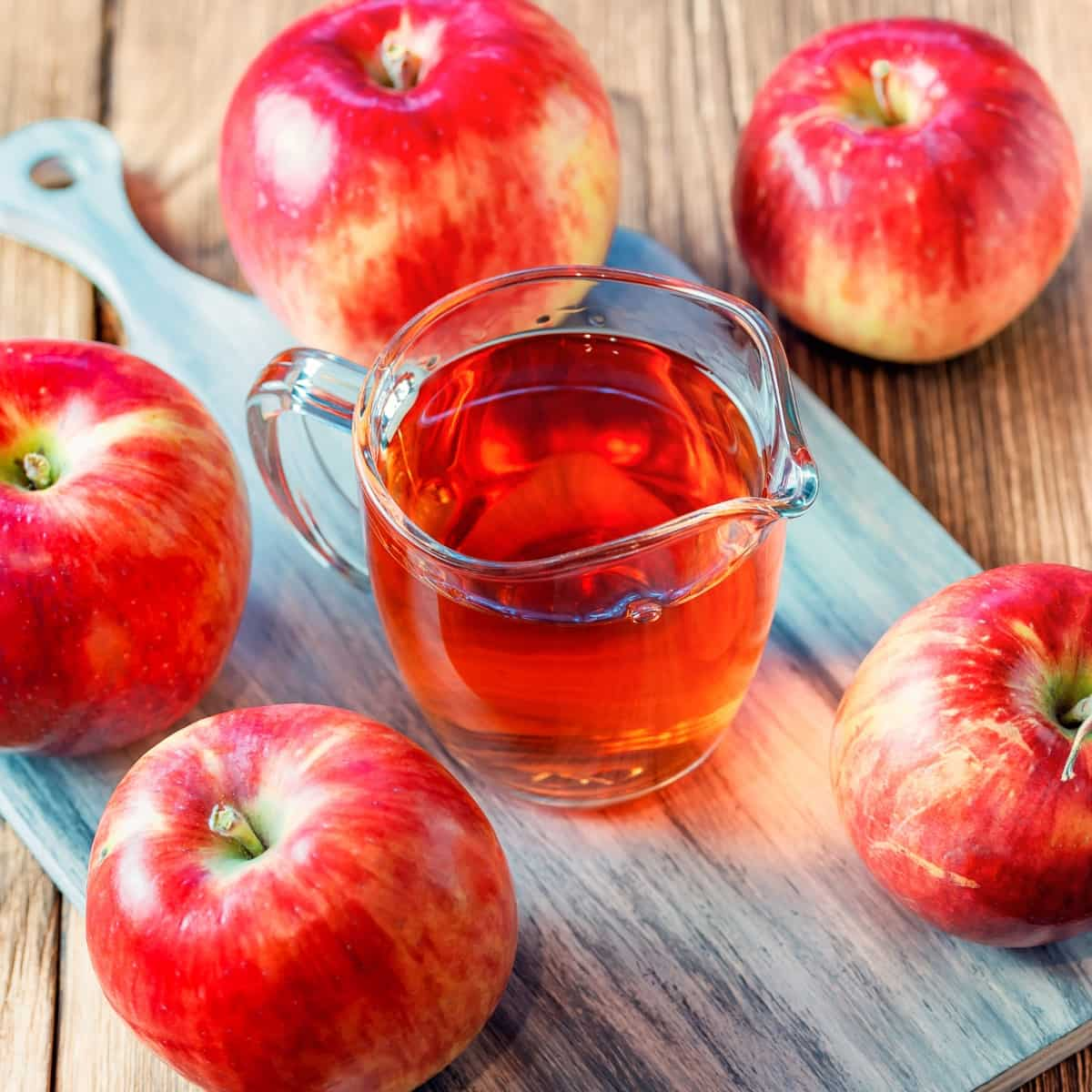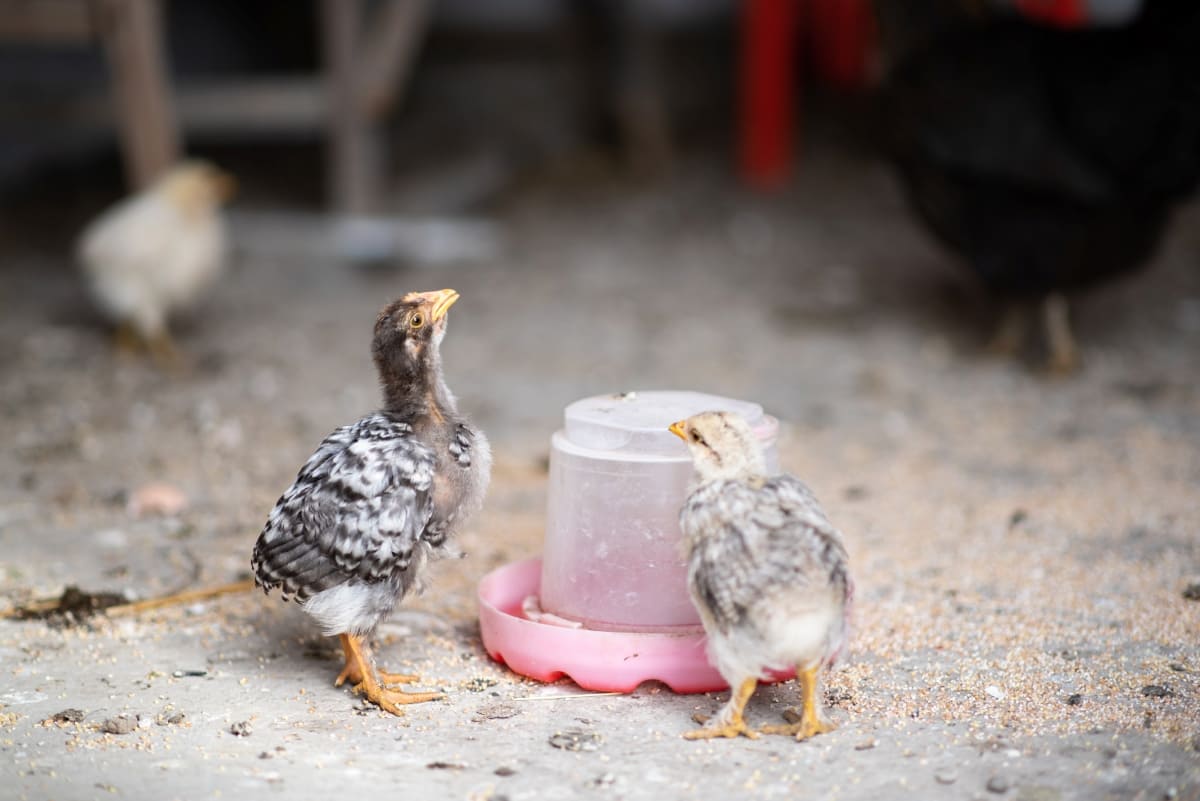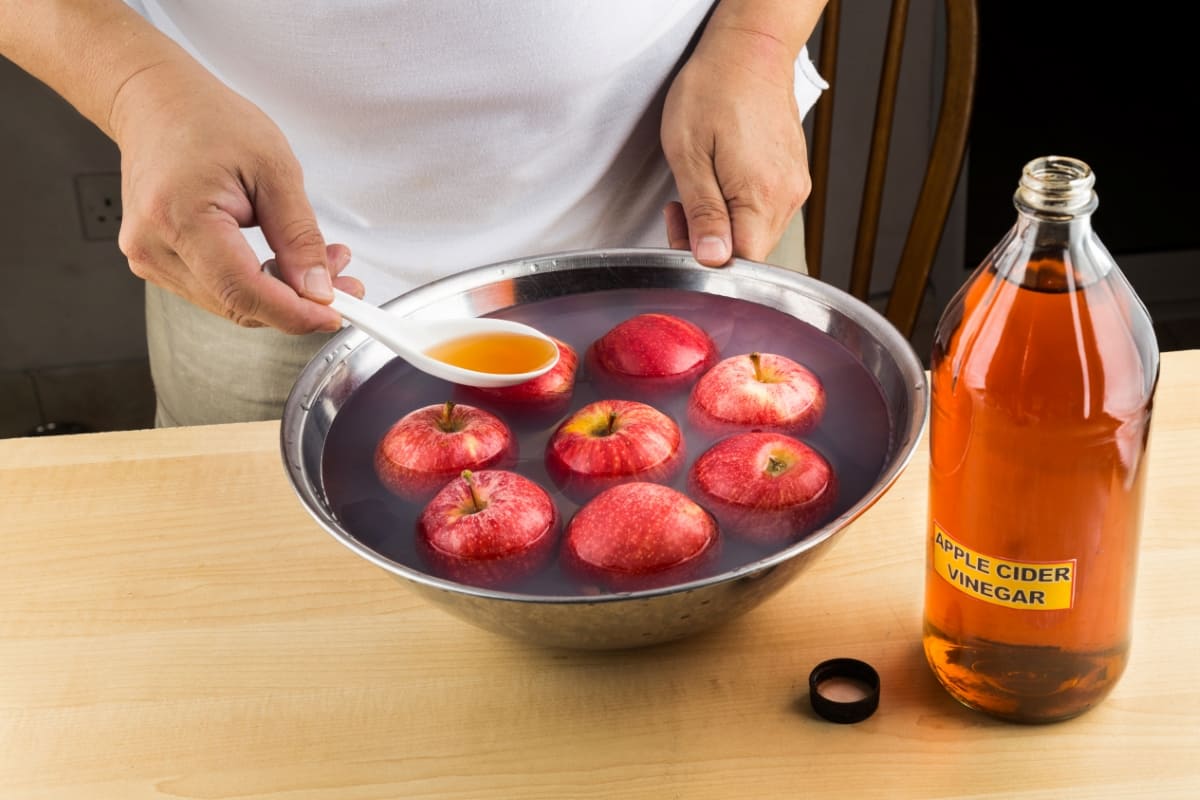Apple cider vinegar (ACV) has long been celebrated for its many of health benefits for humans and our feathered friends – chickens. Apple cider vinegar has gained popularity among chicken owners for its natural health benefits. With its correct use, you can ensure that your flock is at the peak of health, helping to prevent several common illnesses, stimulate digestion, and even improve the quality of their eggs. It is an affordable, simple supplement that can drastically improve your poultry’s well-being.

This article aims to guide you through the benefits of apple cider vinegar for chickens, the process of making it, the appropriate dilution rate, the amount and frequency to administer it, and how to prevent possible risks. As part of our discussion, we will touch upon the combined usage of molasses and apple cider vinegar for chickens, the importance of the apple cider vinegar chosen, and the consequences of using too much apple cider vinegar.
Benefits of Apple Cider Vinegar for Chickens
This humble kitchen staple is rich in minerals, vitamins, and enzymes that can enhance a chicken’s health, including potassium, magnesium, and probiotics, contributing to optimal growth and performance. These nutrients make ACV a natural antibiotic and a potent immune booster, helping the chicken’s body resist diseases like coccidiosis, worms, and avian flu.
The acidic nature of ACV also aids in maintaining the optimal pH of the chicken’s digestive tract, making it difficult for harmful bacteria and parasites to thrive. Adding ACV to a chicken’s diet can also support digestion and nutrient absorption. Apple cider vinegar has acetic acid that aids in mineral breakdown for improved absorption in feed.
It can increase appetite, stimulate more regular laying, and even improve the quality of the eggs. Moreover, ACV can be used externally to kill mites, lice, and fleas. Using molasses and apple cider vinegar for chickens can further enhance these benefitsMolasses is rich in carbs and minerals, offering extra energy and nutrients. When combined with ACV, it becomes a potent supplement.
Preparation: How to Make Apple Cider Vinegar for Chickens
Making apple cider vinegar for chickens at home is a relatively simple process that can be cost-effective and ensures the quality of the product. You will need organic apples, sugar, water, and a glass jar. Firstly, wash and cut the apples into pieces, leaving the peels and cores intact as they are rich in natural yeast.
Place these pieces in the jar and add sugar and water. Place a breathable cloth over the jar and keep it in a dark, room-temperature spot for approximately two weeks until the liquid transforms into cider. At this point, strain the liquid and return it to the jar, letting it ferment for another four weeks. Stir it every few days until you observe a cloudy, string-like substance known as the “mother,” indicating that your ACV is ready.
Dilution Rate and Amount: How Much Vinegar in Chicken Water
Determining the correct dilution rate and the right amount of vinegar in chicken water is crucial to safely and effectively use apple cider vinegar for chickens. The commonly recommended dilution rate is 1-2 tablespoons of ACV for every gallon of water. However, starting with a smaller amount is always better, and gradually increasing it allows the chickens to acclimate to the new taste in their water.
In case you missed it: From Cornish Cross to Red Ranger: Ranking the Best Broiler Chicken Breeds

Considering the amount and the question of how often to give apple cider vinegar to chickens, it’s advisable not to use ACV continuously. A good rule of thumb is to offer ACV mixed water for 3 to 4 days per week. This practice allows chickens to benefit from the apple cider vinegar, but it also ensures that they get regular water and aren’t overwhelmed by the potent taste of the ACV.
What Kind of Apple Cider Vinegar for Chickens?
Several varieties of apple cider vinegar are available on the market, which might raise the question of what kind of apple cider vinegar is best for chickens. The most beneficial type of ACV for chickens is the raw, unpasteurized, and unfiltered variety. This form contains the “mother” – a cobweb-like substance that houses beneficial bacteria, yeast, and protein. The “mother” is a probiotic powerhouse that can enhance your chicken’s gut health and immune system, a feature absent in pasteurized versions. Therefore, when purchasing apple cider vinegar, opt for raw and organic.
Dangers of Excessive Use: Too Much Apple Cider Vinegar for Chickens
While ACV benefits poultry, it’s important to note that too much apple cider vinegar for chickens can lead to negative consequences. An overly acidic diet can cause digestive issues, such as diarrhea. It can corrode a chicken’s throat and crop (the pouch in a chicken’s throat where food is softened before digestion), particularly if ACV is offered in high concentrations.
In case you missed it: Ultimate Guide to Swedish Flower Hen Chicken Breed: Characteristics, Feed, and Care

Overusing ACV can also prevent absorbing certain minerals like calcium, leading to weak eggshells and bone issues. Maintaining the correct dilution ratio is crucial when using ACV for chickens. Regular breaks from ACV supplementation can also prevent these problems and ensure the chickens reap the benefits without the potential side effects.
Conclusion
Apple cider vinegar can serve as an excellent supplement in your chicken’s diet, offering a range of health benefits, from enhancing immune function and aiding digestion to improving egg quality. Making apple cider vinegar at home is simple and cost-effective to ensure your chickens get the best quality supplement. However, it’s crucial to use the right kind of apple cider vinegar (raw, organic, and with the ‘mother’), the correct dilution rate (1-2 tablespoons per gallon of water), and not offer it continuously to prevent potential side effects.
Adding molasses can further supplement these benefits, providing an additional energy and nutrient boost. As with any dietary change, monitoring your flock for any changes in their behavior, appetite, or health is important, and consult with a veterinary professional if necessary. Following these guidelines, apple cider vinegar can be a great addition to your poultry care regimen.
- Feed Your Flock for Less: Top 10 Tips to Save on Chicken Feed
- Ultimate Guide to Ossabaw Island Hog: Breeding, Raising, Diet, and Care
- Hatching Answers: The Top 10 Reasons Your Chickens Aren’t Laying Eggs
- Eggs and Economics: Breaking Down the Cost of Raising Backyard Chickens
- Defend Your Greens: Proven Methods to Keep Iguanas Out of Your Garden
- Ultimate Guide to Cinnamon Queen Chicken: A Comprehensive Guide for Beginners
- Ultimate Guide to California Tan Chicken: Breeding, Raising, Diet, Egg-Production and Care
- Ultimate Guide to Marsh Daisy Chicken: Breeding, Raising, Diet, and Care
- 10 Types of Chicken Farming Businesses You Can Start for Profits